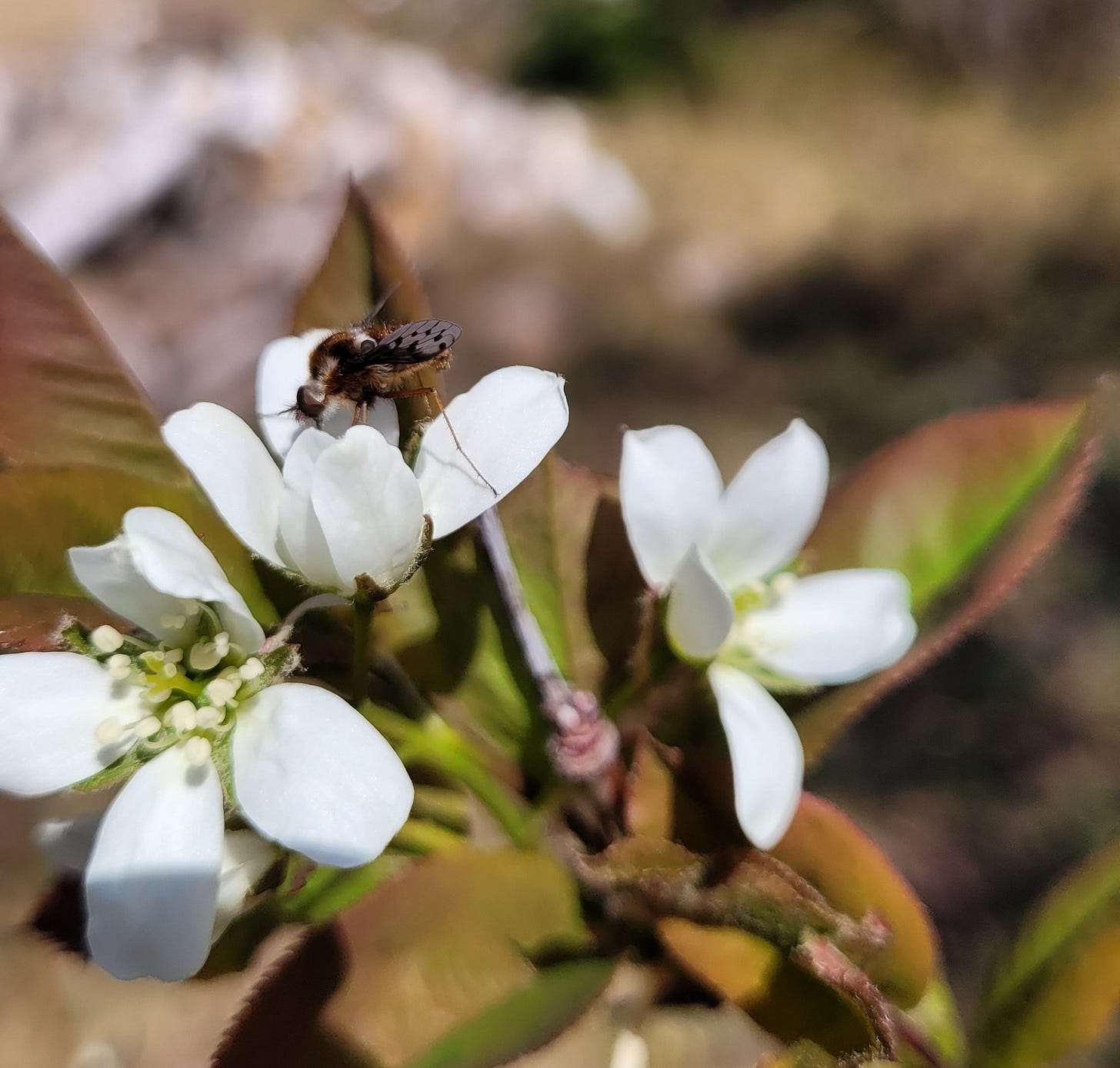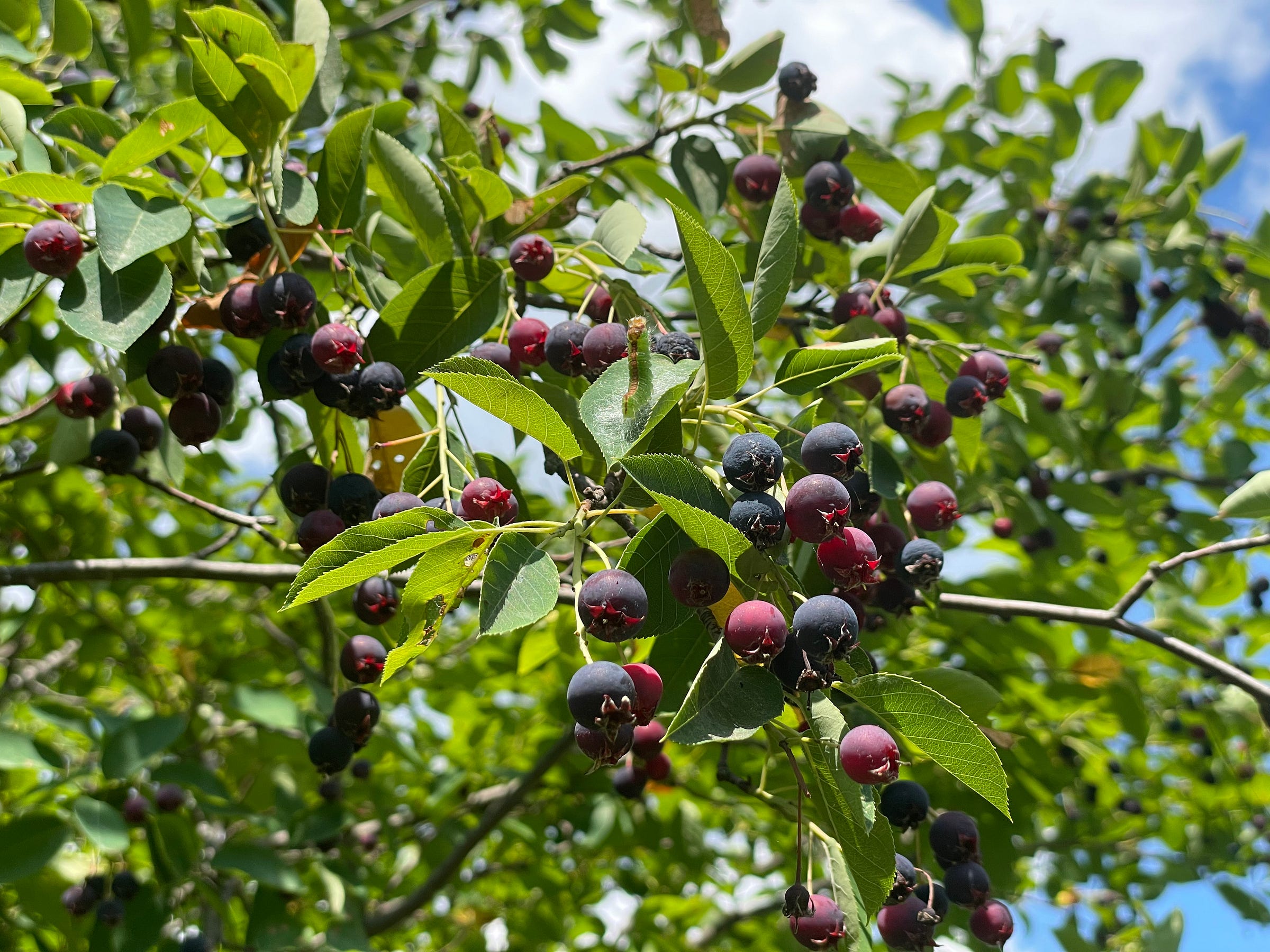Being accountable to the bounty of the "Birds' Tree"
The Honourable Harvest Week 2
As I create the guide called Sharing our Nature, meant to help people wanting to start their own seed libraries in Eastern Canada, I notice many overlapping movements converging towards a greater appreciation of our native plants. We are starting to recognize how much they feed our wildlife, but also make our life here possible. In this, there are principles we should all follow that were well-known by our ancestors, no matter where we come from. They happened to be well-put together by Robin Wall Kimmerer at page 180 of her book, Braiding Sweetgrass.
This weekly column, stretching into October, will tell of stories I have around those principles, and the way I see my own involvement in this societal shift. These principles are evidently meant to be lived, not solved with quick answers.

Second principle of the Honourable Harvest : Introduce yourself. Be accountable as the one who comes asking for life.
Yes, about introductions, I’ll start with the berry and end with myself. Blueberry-like in their aspect, Serviceberries were well-known by the Acadian people, my ancestors, as wild pears (poires sauvages). And they do taste like pears.
They were also on the Old (to us) Continent, where they were called “L’arbre aux oiseaux” (The Birds’ Tree) by the monks who would grow them in their cloister gardens. As some would say, the berries bring all the birds to the yard.
My grandfather called them little pears (petites poires). He was the kind of forager that would eat them only during his nature walks, not bring them home. I would definitely say they weren’t wasted, since either the birds ate them or they got to fall on the ground, in the forest’s seed bank.
I was never the kind of forager that would keep what I harvested for later, either. If I could eat it on the spot, I would. I was more of an observer, the kind of person that would sit there and look at things during my walk, and how they interacted together.
This got me thinking about starting a French-language blog called Amelan.ca less than three years ago. And here I am.
At peace with not knowing
I always sought knowledge, but I now realize that not knowing is the best way to be curious. Even the most esteemed authors see themselves as lifelong learners.
Just after school, I started thinking critically about the way I absorb knowledge. I used to seek all the answers, when all I had to do was think of some question and start living it. For example, if you don’t know a good, reliable answer, there are other ways to go about than making up an answer on the fly. Personally, I try to resist that voice in my head and ask more questions! Even simple ones stand to the test, as they make way for more complex ones.
We can also learn from plants, those who can truly “eat” light. We have two radically different ways of living, but that doesn’t mean we can’t think of ourselves as less intelligent than the other.
The serviceberry attracts light by growing in edge habitats, like old fields and forest margins here in Wabanaki. But it doesn’t stop there. Pollinators come to it in the spring, they who allow the fruits to form. Then birds arrive, spreading them all over the woods and fields.
May is truly their showiest time. The flower is so visible that they’re full of insects for the few days in which they bloom. The blooms shine beacon-white in the brown spring of our woodlands.
For us humans, we have to go get things around where we live, and now the whole world. For these plants, it just comes. They get their food (light), reproductive pollen (insects) and far-away dispersal (birds, humans and other things) without moving an inch in their lives. That certainly doesn’t mean we’re smarter than them!
We long had to forage to survive. But our different way of life today still involves having other humans pick things elsewhere for us. And often, we have the plants do our bidding for us anyway.
“I am a student of this way of thinking, not a scholar. As a human being who cannot photosynthesize, I must struggle to participate in the Honorable Harvest. So I lean in close to watch and listen to those who are far wiser than I am.”
- Robin Wall Kimmerer, Braiding Sweetgrass, p. 180
A few pages later, Kimmerer goes on to tell about an engineering student from Europe visiting an Anishinaabe group and learning about their way of harvesting wild rice. When he suggested a way to make it 85% more efficient, as in by getting more rice, these people said they were letting some drop in the water (“Go to waste”, as some would put it) for future generations of people and other living beings.
But it’s not waste when it’s for others, obviously.
A way to ask the plant for more of its gifts would be to be accountable. Seeds are the plant’s main way to disperse life. By asking the plant (It might respond by being almost empty of fruit, or even sick), we can either conclude that it is ready for being foraged, or that it is not. And that is completely normal.
Have a great week and don’t forget to ask before taking! How would you keep yourself accountable to seed-bearing plants, who give so much and ask so few in return?





I see pollinators as having evolved to do the will of the plants, rather than "allowing" plants to reproduce. I think it is an unbreakable relationship, and I wish we would see more from the plants' point of view rather than just talk of feeding pollinators (any old plant). I think we evolved fingers and brains to know plants, and were once so much a part of that process. Now our main way of spreading seeds or adding nutrients to soil (as the current resident "megafauna" on the planet) completely subverts the ability of any plant to distribute seeds. There are some plants I have only been able to grow by passing them through a digestive tract. Our divorce in so many fundamental ways is our downfall. I wish more people were working on these things.